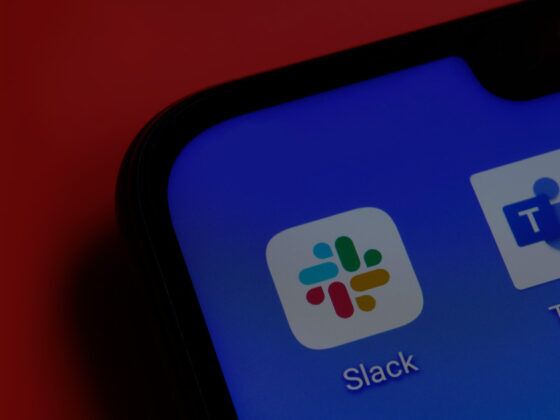We get it. Social media is not something most lawyers think about every day. According to the most recent ABA Legal Technology Survey Report, only 11 percent of attorneys use Twitter professionally. But as social media is now central to more and more matters, lawyers need to think about the ways Facebook, Twitter, and other sites affect their case, or suffer irreparable damage.
Here are the most common social media mistakes, oversights, and blunders that could destroy your case— or even put you and your client in danger of sanctions or jail.
1. Leaving Social Media in the Hands of Your Client.
Alcohol makers tell their customers to give up their car keys. Lawyers need to take their clients’ social media keys.
In the recent case Gatto v. United Air Lines, Inc., (D.N.J. Mar. 25, 2013) the court sanctioned a plaintiff for deactivating and deleting his Facebook account. The important question is, why was this man still using his Facebook account? The parties had established it was going to be an important piece of evidence in this matter, so why didn’t they make a forensic copy of the data?
According to the court ruling, this is how the parties planned to conduct their social media discovery: the plaintiff agreed to change his account password to “alliedunited” (the corporate names of the defendants) and and turn the login information over to opposing counsel. However, the plaintiff claimed he didn’t think that would mean anyone would actually be accessing his account, and couldn’t figure out why someone else was logging into his Facebook page. Instead of changing the password or trying to figure out what was going on, he deleted the entire account.
We’ll talk about why deleting social media is bad more in the next item, but seriously, why did the plaintiff still have control of the only copy of his Facebook account? Social media discovery is not as simple as sharing passwords and logging into someone’s account. If anything, social media is trickier and more difficult to capture than other types of data. If the parties had simply made a copy of the page, as is standard practice with any other type of eDiscovery (and yes, the technology does exist), there would have been no chance a misguided plaintiff could have upended the case this way.
2. Deleting It.
Let’s let the judge in the Gatto case mentioned above spell out your duty to preserve social media. “Litigants in federal court have a duty to preserve relevant evidence that they know, or reasonably should know, will likely be requested in reasonably foreseeable litigation, and the Court may impose sanctions on an offending party that has breached this duty.”
In other words—preserve social media for litigation. If it gets deleted, you get sanctioned. ’nuff said.
3. Pretending Social Media is not Relevant.
In ruling after ruling, courts are telling lawyers that social media can be central to their matter, as in the recent Reid v. Ingerman Smith LLP: “Although the law regarding the scope of discovery of electronically stored information (“ESI”) is still unsettled, there is no dispute that social media information may be a source of relevant information that is discoverable.”
Posts on social media are within the scope of “electronically stored information” as that term is used in Rule 34 of the Federal Rules of Civil Procedure. As with any type of evidence, litigation hold letters trigger an obligation to preserve posts if they are reasonably related to litigation.
If parties can demonstrate that public social media posts even hint that there is discoverable information to be found, then the court will likely allow broad social media discovery of all postings- public and private. The party that addresses social media early in a matter will likely define the scope of that social media discovery.
4. Dragging Your Feet
Once again, let’s let a federal judge explain why “inappropriate and obstreperous” and “contumacious behavior” is not acceptable when social media is involved. On second thought, let’s forget what the judge said and talk plain English. In EEOC v. The Original Honeybaked Ham Co. of Georgia, Inc., despite establishing that social media was discoverable for the case, the plaintiffs failed to produce the evidence for several months.
The defendant submitted social media discovery requests of this content, but the EEOC has, “made this endeavor more time consuming, laborious, and adversarial than it should have been.”
The end result? An adverse inference which could easily destroy the EEOC’s case.
5. Getting Too Friendly with Judges, Colleagues, or Opposing Counsel
We understand that its important to establish a collegial and friendly working relationship with judges and other lawyers. We even understand that you might want to brag about the round of golf you just played with the chief judge in your jurisdiction.
However, the ABA has now published an ethics opinion, warning that judges who use social networking have to follow the ABA Model Code of Judicial Conduct. (See Formal Opinion 462 for details).
If your case is going before a particular judge, be aware of the communications you may have with them. Are you Facebook friends with the judge or opposing counsel? Are you Tweeting them? Those communications are likely discoverable and potentially prejudicial.
6. Going on a Fishing Expedition
There have been a number of commonly cited cases in which courts have ruled social media is discoverable in order to illustrate an individuals mental state at a particular time. However, some legal teams seem to think that means they can just scoop up all Tweets, Facebook posts, likes, dislikes, Pinterest pins, and anything else someone puts online.
These lawyers are hoping to use social media content to paint a picture of someone’s emotional and mental state at a given time. Courts have rightly said this is not a fair strategy. (I certainly hope I never have to defend my decision in court to “like” Mr. Roboto in my Facebook stream.)
In Kregg v. Maldonado, the court wrote that a party must show, “at least some of the discovery sought will result in the disclosure of relevant evidence or is reasonably calculated to lead to the discovery of information bearing on her claim.” Lawyers who make broad requests for social media or don’t understand the finer points of social media discovery are often shut out entirely- no social media for you.
7. Betrayed by Social Media
As reported in Computerworld, social media can give away your secrets. Are you visiting a particular client or well-known expert witness who could be the key to your case? If so, your social media might broadcast this fact to the world (and opposing counsel.)
All social media sites keep an astonishing amount of information about users; mobile apps are especially prone to give it away, in the form of your location, activity, or other information. This, of course, is a boon to requesting parties in a discovery dispute. But if you’re trying to keep your trial strategy under wraps, don’t let your smartphone or your love of Foursquare give you away.
8. Oops, I Forget to Have a Social Media Policy
Employees are going to tweet. That is true of lawyers as well. Tell your staff to disclose trade secrets, product introduction dates, or private health details. As the New York Times reported, the National Labor Review Board and other agencies and courts considering workers’ rights have ruled that workers do have a right to use social media.
But without proper controls or directives, employees are likely to tweet something that is embarrassing or should be kept secret. It is up to you to have a policy that outlines your firm’s social media policy, enforce it, and have the technology in place to manage your organization’s social media usage.
Representing clients in today’s data rich and complex world is difficult enough. There’s no reason to let social media complicate things further. As we’ve demonstrated above, ignoring or taking a lax attitude towards social media is unacceptable. Nextpoint has been archiving social media for litigation since 2010. Talk to us about how to make social media discovery work in any matter.
For more information about Nextpoint’s social media and website archiving software for eDiscovery, contact us, or download our two free eBooks on Social Media Discovery:
10 STEPS TO SOCIAL MEDIA DISCOVERY READINESS eBook
ANATOMY OF A TWEET eBook






